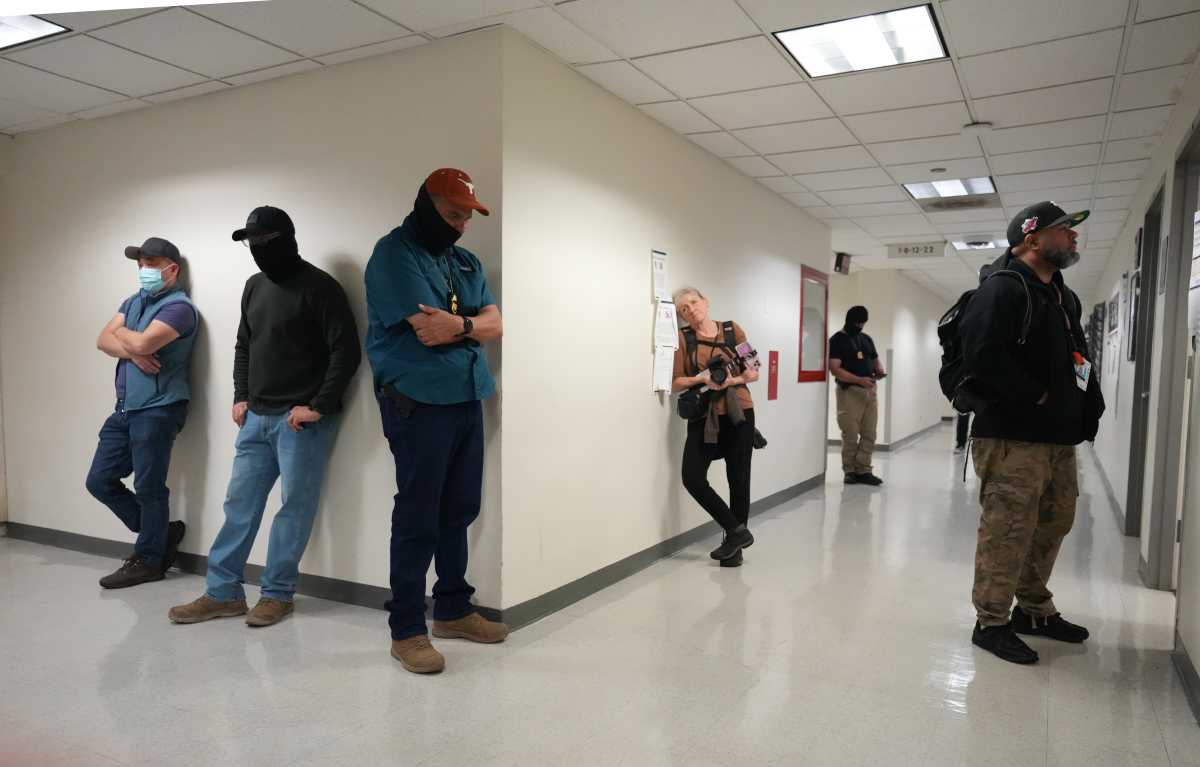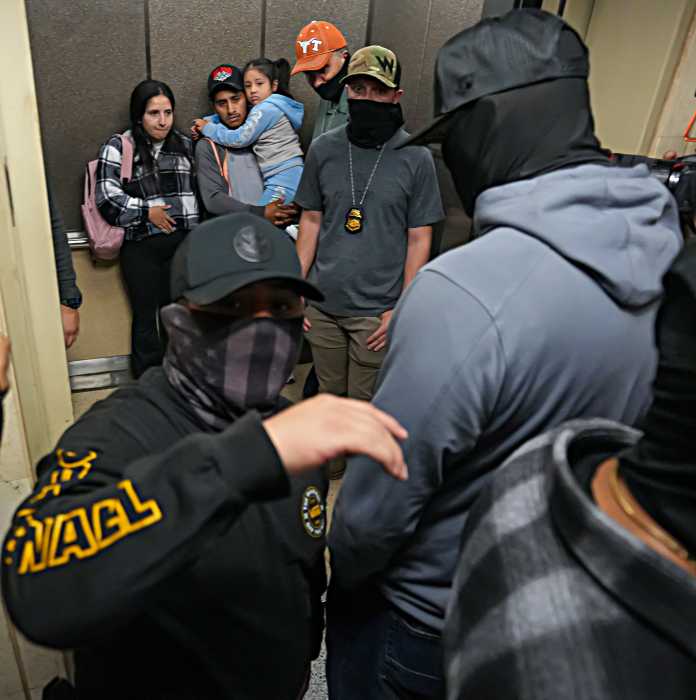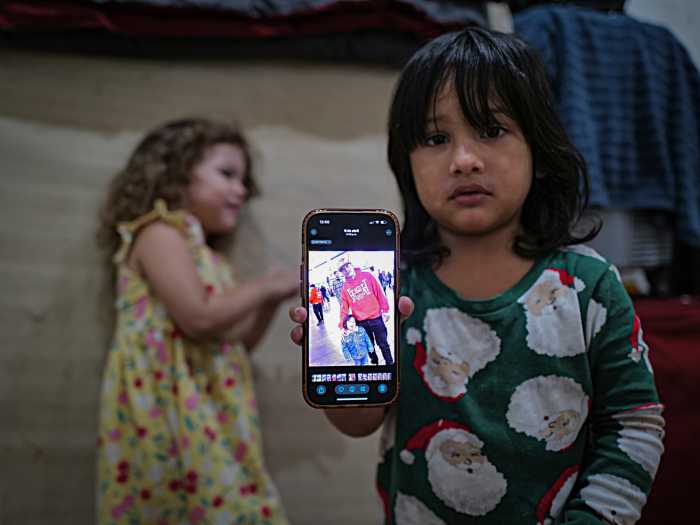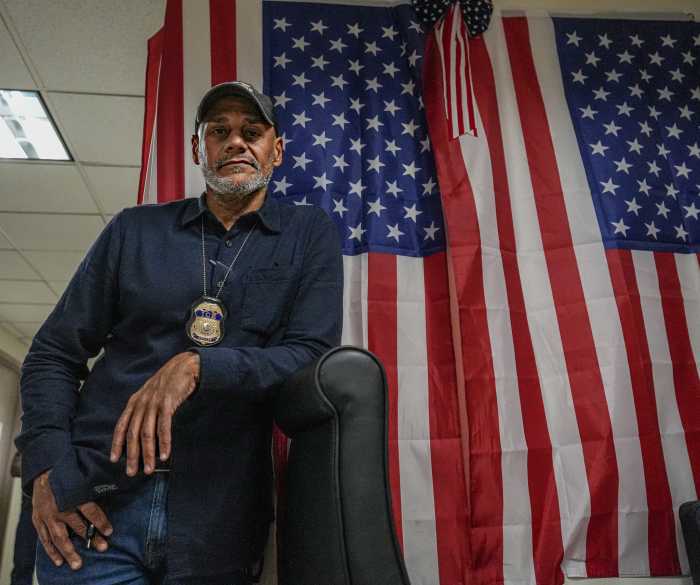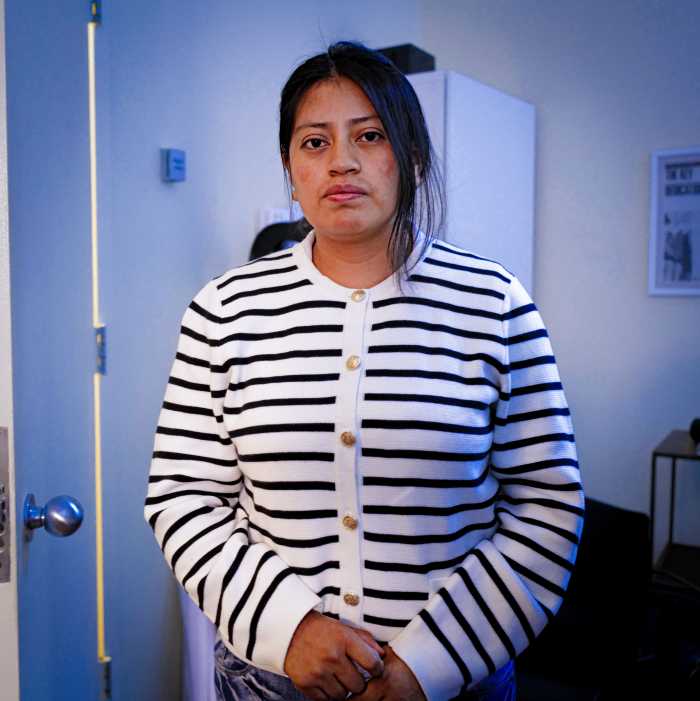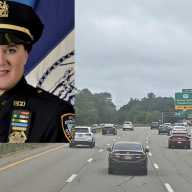Almost every day for five months, photojournalists David Dee Delgado and Carol Guzy have entered 26 Federal Plaza with cameras in hand, ready to capture what many are calling one of the most startling stories of this century: ICE detainments inside the immigration court.
Guzy, 69, and Delgado, 49, have walked the hallways of 26 Federal Plaza, working alongside amNewYork and other outlets to document masked federal agents arresting immigrants who attended legally mandated court hearings. With Delgado on assignment for Reuters, a photo service, and Guzy performing a long-term photo project, both shutterbugs knew that the proliferation and escalation of President Trump’s immigration enforcement crackdown would be a vital story to tell.
“I actually came to photograph the Mermaid Parade at Coney Island, I didn’t come to do the court. And then I’m like, well maybe I should check it (immigration court) out for a day or two — and here I am, almost five months later,” Guzy told amNewYork. “Once I spent one minute, much less one day at the court, I thought this is a really compelling, important story that’s vital to be covered right now.”
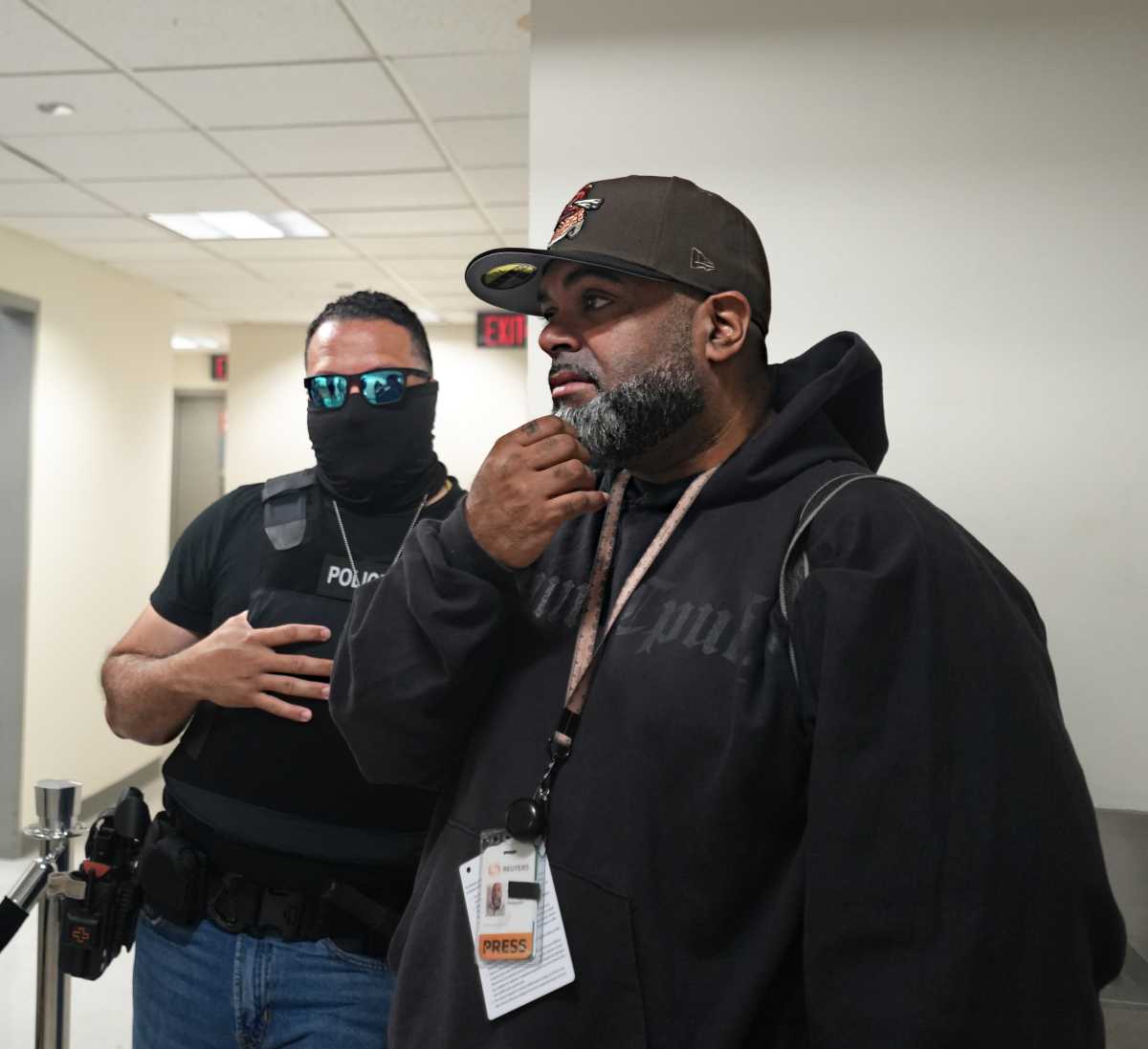
Delgado, on the other hand, had been covering mass migration to the Big Apple in the years leading up to the 2025 ICE detentions and says he first noticed the sheer number of people lining up outside 26 Federal Plaza for their hearings.
In the days and weeks and months he has spent capturing daily life inside the courts, he prides himself on maintaining professionalism by treating the respondents, court workers, and even the ICE agents with respect.
“I know to the average person it doesn’t make sense. But as a journalist, your personal feelings need to be kept out of it. At home, I have my own personal opinions about this situation. But when I’m here at work, I’m not biased. I have to just keep it true to what it is,” Delgado said. “I’m impartial, and I’m just showing the facts.”
Moments that choke them up
Despite their commitment to being professional and unbiased, both photographers have witnessed some of the most emotionally traumatic moments of their careers through family separations. It is an emotional and scarring experience, they recalled seeing husbands and fathers ripped away from their wives and children.
For Delgado, he says the worst moment of his coverage came when a daughter was pulled from the arms of her father.
“I’m a father myself. I have a daughter, and when this little girl, when they went to detain the father, the little girl jumped in, and she hugged her father around the waist and started yelling: ‘Don’t take my daddy. That’s my only daddy!’ To this day, I still get choked up — that’s the one that I will carry to the very end, that’s the one that hurt me personally the most, because, you know, like I said, I have a daughter,” Delgado said, tearing up.
Both Delgado and Guzy welled up with tears as they recalled these moments of despair — a weight they bear on their shoulders only a select few can understand.
Guzy, a multi-time Pulitzer Prize winner, has covered war zones, the toll of gun violence, and much more, yet says covering ICE arrests has affected her unlike anything else in her long career.
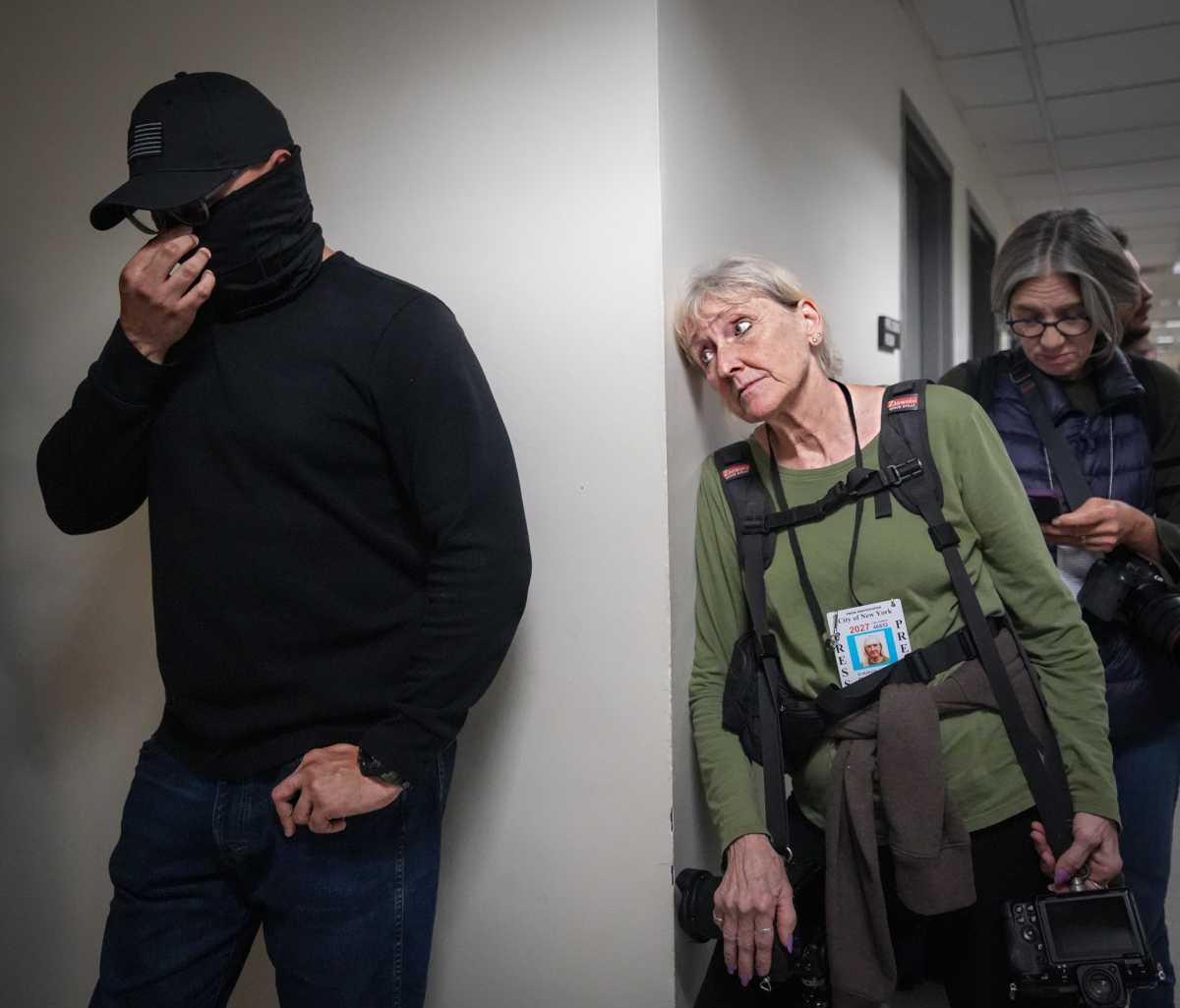
“We’re not robots. We’re not walking cameras, we’re human, and we have feelings just like everyone else. As a journalist, you kind of go on autopilot because you have to do your job, and then one thing breaks you, and then the floodgates open. But of course, we’re feeling what we’re witnessing,” Guzy said, referring to the same child being pulled from her father.
Delgado added that the experience is affecting him in ways he has not yet fully comprehended.
“I know down the line, I’m pretty sure this is gonna come out in some type of f**ked up way. I’m probably gonna need therapy, but, yeah, but at this moment, you know, I just go through the motions,” Delgado said.

Although both journalists are carrying heavy burdens, they say they believe the work is as critical as ever, even as the arrests spill out of the courtrooms and into the streets.
Guzy stated that, despite following numerous stories throughout her life, she had never been thanked for her work as much as she was during the five months she spent at 26 Federal Plaza. She also believes that the presence of the press has helped hold the federal agents accountable for their actions.
“I’m 100% sure in my gut. I could never say that in a caption, for instance, but I’m 100% sure that things are done differently because eyes are on the scene,” Guzy said.
Guzy also says she feels like documenting these ICE detentions not only shows the world important, heartbreaking moments, it also shows a turning point in history.
“I’ve covered a lot of really important stories. And I feel it too in my gut, I feel like this is America’s changing. This is a pivotal point in America, and I believe the role of journalists is even more crucial in highlighting the effects of these policies on real people. And this is an opportunity to do that,” Guzy said.
